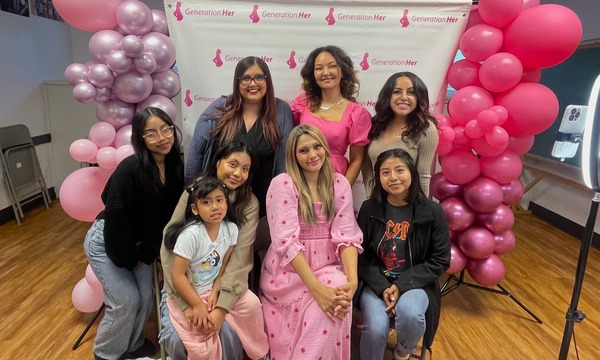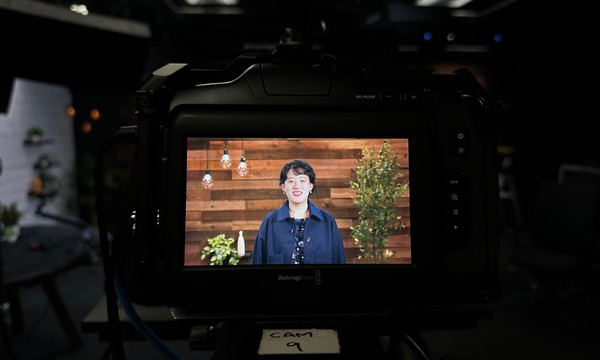Biola’s Talbot School of Theology extension site in Kyiv, Ukraine opened its doors to the first group of students in the spring of 2007 and exists to help meet the great need for theological education across the former Soviet Union. Students come from Ukraine or Russia for the program, which is the first accredited master’s level education program in the country for biblical and theological studies.
Currently there are 25 active students within the program, all actively involved in ministry. Professor Mark Saucy and director of the Kyiv extension site shares how the recent conflict in Ukraine has affected the city of Kyiv and how to best pray for the students and greater community in Ukraine.
How is the conflict in Crimea affecting Talbot's extension site in Kyiv?
So far we are still running our sessions and the students gladly attend. We have not had any interruptions but we have had to be vigilant on a few levels. The crisis has seriously devalued their [Ukrainian] money. We have to ask if the price of tuition is now out of students’ range. Their money lost one-third of its value. Some of the students commute from long distances, and, at one point, train travel was interrupted. These are things we need to take into consideration.
We are trying to attend to students and their attention level. Can they function, study and concentrate right now? Life in Kyiv has not been interrupted for the most part. Goods and services are still functioning, but there is a heaviness living under this turmoil right now.
Our biggest concern is for the integrity of the host institution where Talbot’s sessions are conducted. Kyiv Theological Seminary’s leadership has decided to continue running classes, but every day we’re watching the situation.
Beyond the economy, have students' daily lives been affected by the conflict?
At some level, no. However, at the psychological level, yes. It partially depends on where you are from. We have students from the contested regions of Ukraine and they are nervous about leaving their family to go to sessions and study. We also have one student who now lives in another country because he lives in Crimea. Before March 21 he lived in Ukraine. Now he lives in Russia. He doesn’t want to be Russian, but that’s where his property is. So if you are from these regions, life is quite upside-down. However, Kyiv is quite far from the contested parts.
Faculty members are still carrying on, however, many of them are missionaries so they are under crisis management and evaluating at what level of crisis they should evacuate their own families. Ukrainian staff members are still doing their job. They are all in Kyiv so they are not as affected as those who travel. We need to be mindful of economic issues that may arise for them and have understanding of their ability to do their work. For some, work and studies may be a pleasant distraction or a relief, but we are still in the process of evaluating the situation.
What is God doing at the Kyiv site in the midst of the turmoil?
This is a huge opportunity for the church of Ukraine. Crisis and instability, socially and politically, turns peoples’ eyes towards religion or God because their security has been stripped away. People are more aware of spirituality. Now students have an opportunity to proclaim who the Prince of Peace is, who gives real peace to everyone. The current president of Ukraine comes from an evangelical Christian stock for the first time. Months ago when there were shootings in Kyiv, he told people of Ukraine, “We don’t need your money or blankets, we need counselors to talk to the bereaved.” He meant Christian counselors. It was an opportunity for Christians to step in.
The site is a place for the students to catalyze. Churches have been planted from sessions and it’s a huge colloquium to talk about ministry strategies and encourage one another. That is happening. There’s an edifying component when they can come in and see each other. There is a lot of support that comes from those circumstances. I know some of them have used the session for a breather, to get away. One student said, “I’m fasting from the media.” It is a constant torrent of what is going on. When you have this many Russian troops just across the border, it is not business like usual. But God is clearly working and his Word is going out in ways that it has not before. God always uses times like these for that, and our students are among those who have opportunities like they have never had. It is the bittersweet redemptive part of hardship.
Is there tension in the classroom between Ukrainian and Russian students?
It is amazing how the media shapes your worldview. In the eastern part of the country, the media is very unbalanced. There is no access to more objective media. So I’ve seen that people have formed opinions based on things I had known differently and people in the west had known differently. It is all what you’re exposed to. However, when discussions go toward social or political topics, there’s a greater unity among the students because of the Lord. It is what they have in common — the church and God. There is no tension, but different opinions do show up based on what you’ve been exposed to.
How can we best pray for Kyiv?
- Pray for a just peace. Pray for God to restrain evil and for him to give wisdom to leaders of all countries involved.
- Pray for the power of the gospel to go forth from his people.
- Pray for God’s provision for students, his provision so that they may serve him from a whole heart.
- They need wisdom, too. All of our students are active in ministry. They are all shepherding a flock at some level. They need to be God’s voice for their people, and they need his wisdom in that.
For more information, contact Jenna Bartlo, Media Relations Specialist, at 562.777.4061 or jenna.l.bartlo@biola.edu.
 Biola University
Biola University

.jpg)
.jpg)